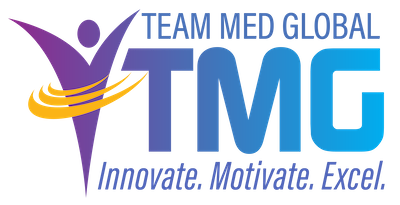 You’ve passed your National Association Medical Staff Services CPCS® or CPMSM® exam. Congratulations!
You’ve passed your National Association Medical Staff Services CPCS® or CPMSM® exam. Congratulations!
But now what?
You have the letters after your name – a designation that reflects your competence, your perseverance, and your commitment to our profession – but what does that mean in concrete terms? What are your next steps?
The first step is to shout your accomplishment from the rooftop. Maybe not literally, but definitely share that information far and wide. Start by throwing a party with friends and family, and enjoy your accomplishment.
From there, share your accomplishment with your supervisor and those up the leadership chain. Don’t forget to provide context about the meaning of your certification. Communicate the work you put into studying for the exam and the difficulty of the test. Underscore that this designation illustrates that you’re intentional about your career development. Point out that your certification helps your organization because you are a subject matter expert.
Next, update your resume. Share the news with your peers and with your state association. In fact, update your credentials within your state association to create the potential for opportunities to come your way.
In the same vein, update your LinkedIn profile. Once you achieve your certification, you can attach the relevant NAMSS badge to your profile. Then, when you apply for a new job, your potential employer can confirm your certification with a single click.
Looking to the Future
Once you’ve celebrated, shared your accomplishment, polished your resume, and updated your LinkedIn profile, it’s time to think about your long-term career goals and professional development.
Your new designation demonstrates your mastery of a certain realm of knowledge. Like those who leverage their undergraduate and post-graduate college degrees to further their goals, you can use your credential to achieve your objectives. You’ve proven that you know our industry and our profession. Your credential helps you earn the trust of your organization’s physicians and C-suite executives.
Historically, there’s a direct line between your certification status and your salary. While COVID-19 has turned pay scales topsy-turvy, the bottom line is that MSPs holding certifications do earn more. Those certifications are valuable to employers. During your performance review, remind your supervisor that you achieved your certification. If you ask for a salary increase, know that you are in a stronger position thanks to your CPCS® or CPMSM® designation.
Having your credential can open up a wealth of job opportunities. If you’re in the market for a new position as a manager, supervisor, or director, your future employer is likely looking for a CPMSM® credential.
Options for Further Education
If you’ve received your CPCS® credential, you may want to consider obtaining your CPMSM® credential. The difference? While the CPCS® exam focuses on accreditation standards and credentialing verification requirements, the CPMSM® exam encompasses leadership, meeting management, Robert’s Rules, budgeting, fair hearing, and precedent-setting legal cases that impact the industry.
The CPMSM® exam is available only to those MSPs who have a minimum of five years in the profession. That said, if you’re close to meeting the criteria, you can start studying now. TMG University has both an 11-week virtual course and an intensive two-day boot camp to help you prepare for the National Association Medical Staff Services CPMSM® Certification exam.
You may not be sure if the CPMSM® certification is right for you. Don’t worry – you’re not alone. Reach out to others in the field. The TMG Zone is a great place to connect. Once you make connections, ask those colleagues about the benefits and downsides of pursuing your certification. Inquire about their experience with different study programs.
If you’re ready to take the next step in professional development, TMG University’s Executive MSP credential captures the essence of our ever-evolving field. It’s the gold standard in MSP proficiency, opening doors and enabling you to fulfill your career potential.
Looking at the big picture of the MSP profession, it’s clear that the next frontier is payer enrollment. A marketable MSP is one who is well-rounded. Obtaining your Executive Payer Enrollment Professional credential (EPEP) demonstrates that you understand the medical services landscape and are prepared to meet the future.
If the credential doesn’t match your professional development goals, then a good place to start is with our EPEP 101 course. Available as an 11-week course or video on demand, this entry level class provides you with the payer enrollment foundation you need to excel.
Payer enrollment is becoming prominent in our profession, but there are other areas of knowledge on the horizon. With revenue closely bound to performance, an understanding of healthcare quality data is becoming ever more critical. TMG University offers courses in these subjects, as well as build-your-own courses designed to meet your individual needs.
Now that you’ve reached that wonderful milestone of passing your CPCS® or CPMSM® exam and are wondering “What’s next?” remember that many, many doors are open to you. If you’re unsure, TMG University can connect you with a coach or mentor. You can pick their brains, talk through your goals, and receive guidance from someone who has already been on that journey.
The bottom line? Bask in your accomplishment and use your new credential as a springboard to reach your professional goals.
Maggie Wilkerson, CPCS®, CPMSM®, is Team Med Global’s Chief Operations Officer. If you would like to explore your next steps and professional development, schedule a meeting with Maggie here: https://calendly.com/team-med-global/30min
